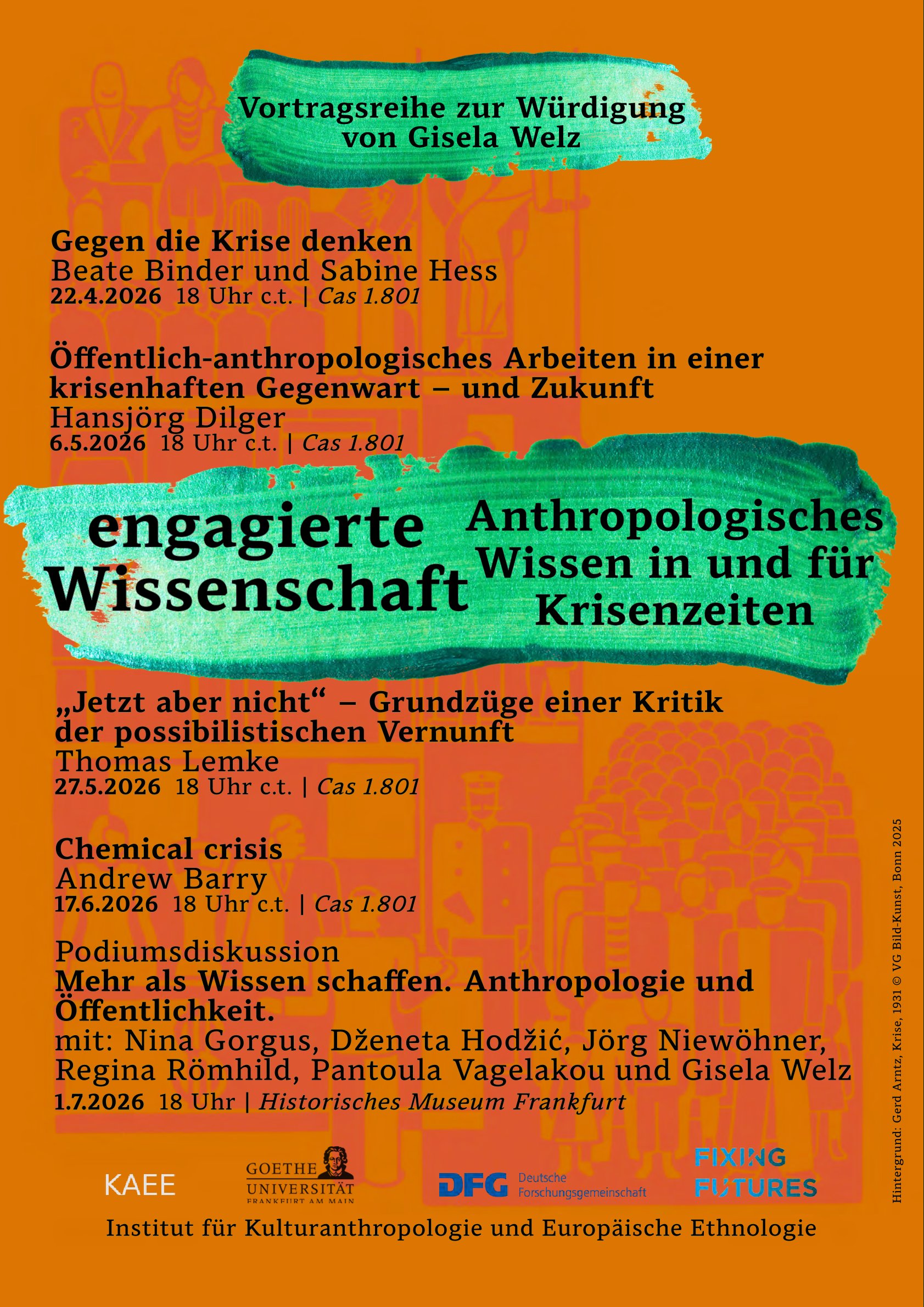
Speaker: Thomas Lemke (GU Frankfurt)
Date & Time: 27 May 2026, 6 p.m.
Location: Cas 1.801, Goethe University, Campus Westend
This lecture is part of the series Engagierte Wissenschaft: Anthropologisches Wissen in und für Krisenzeiten, which is organised in honor of Gisela Welz‘ year long work and dedication as professor of cultural anthropology and prinicipal investigator for the RTG.
The lecture will be held in German.
No registration needed.
